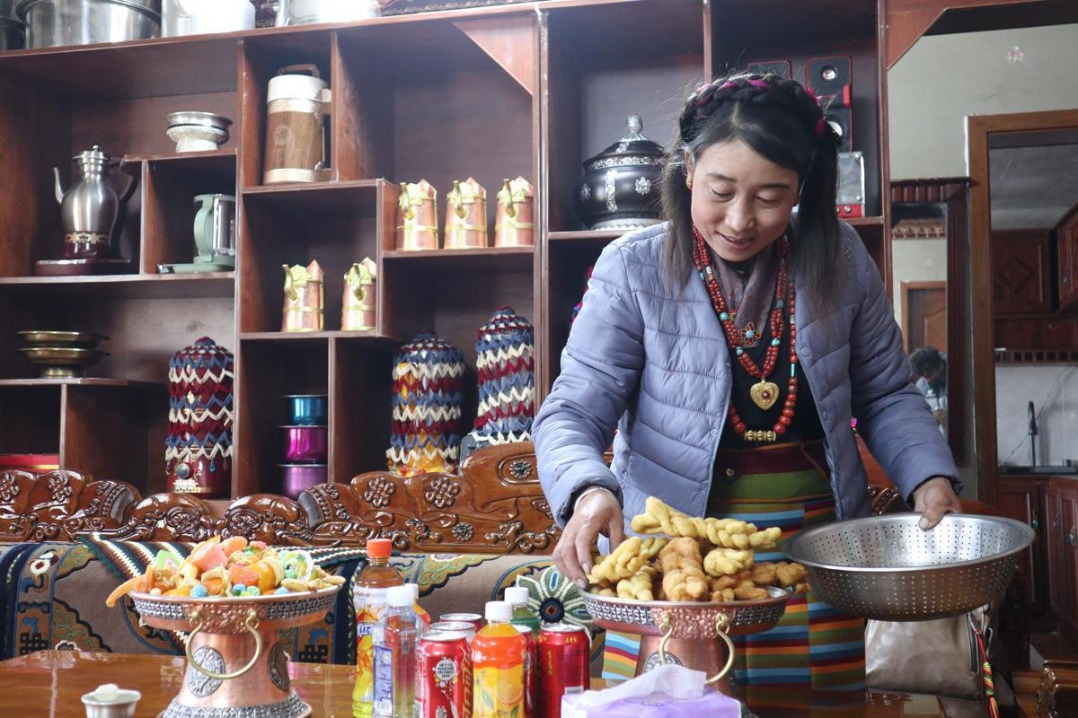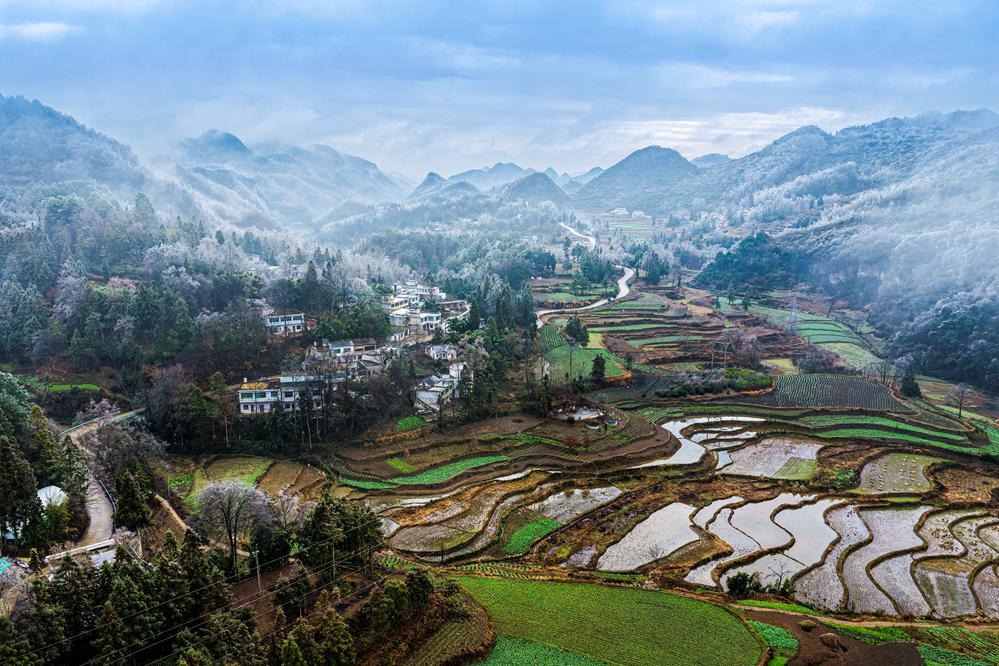The Belt and Road Ministerial Forum for International Cooperation in Disaster Risk Reduction and Emergency Management 2021

BEIJING DECLARATION
We, the Ministers responsible for Disaster Risk Reduction and Emergency Management from Belarus, Brunei Darussalam, Cambodia, Chile, China, Indonesia, Kazakhstan, Kyrgyzstan, Laos, Mongolia, Mozambique, Pakistan, Russia,Saudi Arabia, Serbia and Singapore having met in Beijing, P. R. China via virtual conference on 3rd November 2021 on the occasion of the 2021 Belt and Road Ministerial Forum for International Cooperation in Disaster Risk Reduction and Emergency Management, under the theme of "Strengthen Disaster Risk Prevention and Enhance Emergency Management Capacity"and welcome the participation of representatives from UNOCHA, UNDRR, ILO, ICRC, IFRC, ICDO, ASEAN Secretariat and SCO Secretariat in the Forum.
Express deep concern at the continuing impact of disasters intensified by climate change and the current COVID-19 pandemic that has been spreading rapidly in the world resulting in recurrent loss of human lives and livelihoods, displacement of people, and environmental, economic, social and material damages.
Recognize the importance of the Belt and Road Initiative (BRI) and the consensus on "promoting cooperation in resilience and disaster-risk reduction and management" proposed in the Joint Communiqué of the Leaders' Roundtable of the 2nd Belt and Road Forum for International Cooperation held in Beijing in 2019.
Support the establishment of the Belt and Road International Cooperation Framework for Disaster Risk Reduction and Emergency Management proposed by China by upholding the people-centered development philosophy and the principle of putting people's lives as top priority, work together to enhance people's sense of fulfillment, happiness and security, and focus on safeguarding the rights of safety and health of women, children, the elderly, the disabled and other groups, thus contributing to building a community with a shared future for mankind.
HEREBY, CALL ON ALL GOVERNMENTS AND STAKEHOLDERS TO:
Strategies and Policies
1. Support the important role of the United Nations in the international cooperation on disaster risk prevention, mitigation and relief, workplace safety and emergency response. Ensure the global multilateral mechanism to facilitate the cooperation among Belt and Road Cooperation Partners including South-South cooperation.
2. Reaffirm the commitment to implementation of the global frameworks such as the 2030 Agenda for Sustainable Development, the Paris Agreement on Climate Change, the Sendai Framework for Disaster Risk Reduction 2015-2030, pursuing a balanced approach to the development and safety by focusing on preventing the disaster risk, so as to promote sustainable economic, environmental and social development.
3. Promote dialogue and exchange among a broad range of national strategic plans, policies, regulations and standards in the areas of disaster risk prevention, mitigation and relief, workplace safety and emergency response and to explore the possibility of formulating the regional strategies.
Disaster Prevention and Mitigation
4. Promote joint risk assessment and research on disasters and multiple hazards, by sharing disaster risk assessment information, outcomes and utilization of fundamental databases, so as to better identify major disaster risks in the region.
5. Reinforce disaster prevention measures and scale up effective early warning systems, strengthen the monitoring and early warning of disaster risks and translate into early action including for hard-to-reach and remote populations.
Disaster Preparedness
6. Promote risk-sensitive public and private investments for building disaster resilience, in particular, to make new infrastructure resilient and accessible and design innovative solutions for affordable retrofitting of existing infrastructure and improve disaster response capacity of the rural areas.
7. Enhance the technical capacity of personnel for addressing local risks and sharing advanced experience through reciprocal visits to disaster risk reduction and emergency management institutions.
8. Promote the joint research and development of key technologies and its
applications on new technologies and equipment to improve the capacity of science and technology.
Emergency Response
9. Pledge to share information on disaster situations and disaster relief, send rescue teams and provide relief supplies to each other when necessary, and upon offer and acceptance.
10. Cooperate and support the partners through raising awareness of disaster risk reduction, improving emergency rescue and evacuation capacity, jointly carrying out research on emergency plans, and conducting the trainings and competitions for rescue teams to exchange rescue experience.
11. Scale up the effective transboundary emergency rescue capacity and establish liaison and coordination mechanisms.
12. Promote the exchange and cooperation on disaster relief supply reserve system, emergency information platform, logistics system and contigency plans.
Post-disaster Reconstruction
13. Promote the exchange on ensuring continuity of critical infrastructure and services, facilitating effective linkages between response, rehabilitation and development and living conditions in urban and rural areas, and work together through post-disaster recovery and reconstruction to restore working and living conditions and economic and social development in the disaster affected areas to achieve coordinated development between human and eco-system.
14. Commit to greater accountability for disaster risk reduction, including through systematically collecting and recording disaster damage and losses, conducting and sharing risk assessments and analysis to inform regional, national and local strategies to make progress in achievement of global and national targets and indicators.
Funding
15. Commit to mobilizing the necessary resources, especially finances, to implement the disaster-resilient infrastructure, major construction project, scientific research, personnel training, technology research and development, dissemination of scientific knowledge, education and training of the respective countries.
16. Pledge to make full use of the South-South Cooperation Assistance Fund, as well as funds from international and regional organizations such as the World Bank and regional development banks, complemented by triangular cooperation to support the implementation of practical cooperation projects in the less developed countries.
Express our gratitude and appreciation to the Government of China for hosting the 2021 Belt and Road Ministerial Forum for International Cooperation in Disaster Risk Reduction and Emergency Management and look forward to the next Ministerial Forum, which is expected to be held regularly.
Adopted on 3 November 2021, in Beijing, P. R. China
- Top Party leadership hears series of annual work reports
- 'Great ship' of shared future sails onward
- Ten photos from across China: Jan 2 - 8
- Jilin winter fishing festival fetches record auction, visitors
- China pushes higher education reform with focus on tech and industry
- Emergency crews battle wildfire in Shenzhen




































